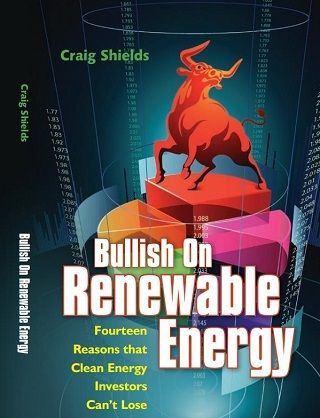Government Support Will Help (But Is Not Required For) the Rapid Migration to Renewable Energy
The comments you receive to your articles are always interesting. The authors are usually very sincere, well-meaning folk who genuinely believe in the righteousness of their ideology, and are frustrated by what they see as a conspiracy by conservative forces and “vested interests,” to maintain the status quo. … When they discover most renewable energy projects lack commercially viable applications, they turn to governments to change the rules. Thus a plethora of projects become seemingly “economically viable,” due to government regulation or funding.
There may be some minuscule amount of truth to this, but it’s essentially incorrect. Here’s why. What you’re about to find out is that the cleantech industry is in the process of coming to dominate the world economy of the 21st Century—with or without government help. I know this sounds like a rash prediction, and I know you don’t believe it for a second, but (for the reasons I enumerate in “Bullish on Renewable Energy”) I feel very strongly that the following forces (most of which are rooted in pure market economics) are marching inexorably forward:
• The levelized cost of energy from solar and wind continues to plummet.
• Energy storage, while it is not actually required here, will help—and it too is becoming more affordable. Electric transportation represents an important tool to storing energy, and (obviously) will mean the end of oil once it becomes ubiquitous.
• The relationship we have with our power utilities is undergoing upheaval, and, when the dust settles, will be much more conducive to integrating more renewables into the grid-mix.
• Incredible developments in energy efficiency are making the overall energy load smaller, thus bringing renewables more capable of providing a bigger portion of our overall energy needs.
• Some of the wealthiest people and corporations on the planet have already shown that they’re not willing to sit around and watch human civilization destroy itself.
On top of that:
• Heightened consumer sensibilities on the environment will accelerate all this even faster. I’m not counting on this, but even Americans, perennial laggards in this arena, are starting to come around. E.g., you won’t see a single Republican presidential candidate in 2016 saying that global warming is a hoax. Suddenly it’s become all to real: vehemently disagreeing with 97% of scientists on a critically important matter is not a sign that you’re a “maverick” or that “you’re your own person” or that science itself can’t be trusted; it’s a sign that you’re an idiot. As we demonstrated in the early part of this century, Americans don’t place too high a value on the intelligence of our most senior leaders–but there is a limit to our acceptance of stupidity (and corruption), and climate change denial has crossed that line.

